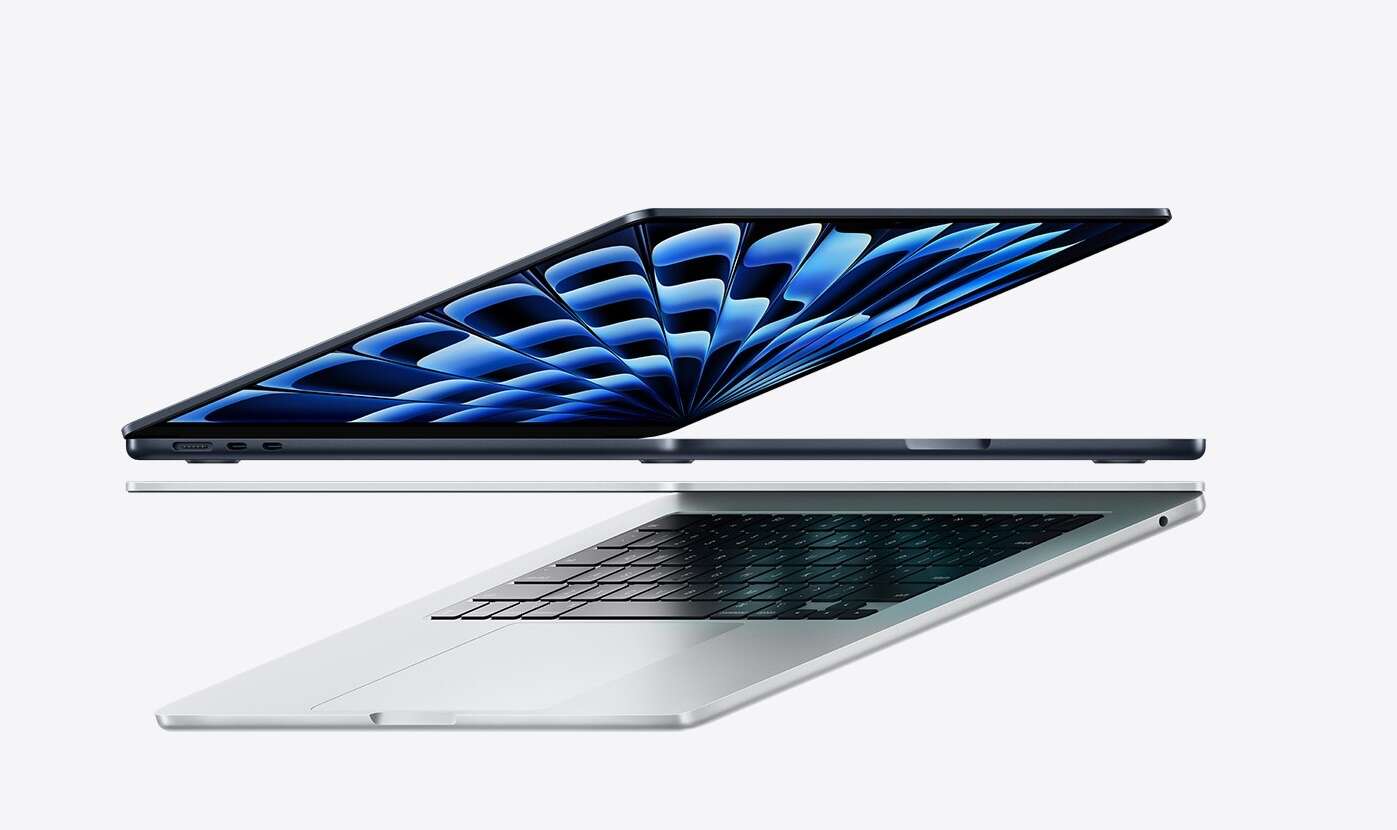
The unveiling of the new MacBook Air with the M3 chip has certainly stirred the tech community, especially for those of us who have been closely following the evolution of Apple's MacBook Air line. As a current MacBook Air M1 user, the leap to the M3 version presents an interesting dilemma: is the upgrade worth it?
The M3 MacBook Air, as detailed in recent reports, offers a significant performance boost over its predecessors. With Geekbench scores indicating a 20% performance increase over the M2 model, the M3 chip, built on a 3-nanometer process, promises faster performance and improved efficiency. This is particularly notable in single-core and multi-core benchmarks, where the M3 outperforms the M2 with scores of 3,091 and 11,850, respectively. Such improvements are enticing, especially for power users who demand more from their machines.
One of the standout features of the M3 MacBook Air is its ability to support two external displays with the laptop lid closed, a boon for those who use their MacBook Air as a desktop replacement. This, coupled with hardware-accelerated ray tracing and mesh shading, suggests that Apple is taking steps to cater to the needs of gamers and professionals who require robust graphical capabilities.
However, it's not all about performance. The M3 MacBook Air maintains the same design ethos as its predecessors, focusing on portability and battery life. Apple claims up to 18 hours of battery life for the new models, a figure that remains unchanged from the M2 version. This consistency in battery performance is crucial for users who value the MacBook Air for its all-day endurance.
The introduction of Wi-Fi 6E support is another noteworthy upgrade, promising faster internet speeds and improved connectivity. Yet, despite these enhancements, the base configuration of the M3 MacBook Air still starts with 8GB of RAM and a 256GB SSD, a specification that feels increasingly dated in 2024.
From a pricing perspective, the M3 MacBook Air retains the starting price of $1,099, the same as the M2 version at launch. This pricing strategy is interesting, as it suggests Apple is aiming to make the M3 version accessible without undercutting the value of the M2 models still on the market.
For someone like me, who currently uses a MacBook Air M1, the decision to upgrade to the M3 version is not straightforward. The performance improvements and new features are certainly appealing, but the question remains: do these enhancements justify the cost of upgrading from an already capable machine?
In the broader context of the tech landscape, the M3 MacBook Air represents Apple's ongoing commitment to pushing the boundaries of what its laptops can do, especially in terms of performance and efficiency. Yet, as we look towards the future, it's clear that the conversation around what makes a laptop truly "next-gen" is evolving. Features like AI integration, cloud computing capabilities, and even more advanced display technologies are becoming increasingly important.
As we ponder the merits of upgrading to the M3 MacBook Air, it's also worth considering what the next iteration of Apple's laptops might bring. With the pace of technological innovation showing no signs of slowing down, the future of the MacBook Air—and indeed, the entire laptop industry—promises to be anything but predictable.
Sources
- https://appleinsider.com/inside/macbook-air/vs/m3-macbook-air-vs-m2-macbook-air----compared
- https://discussions.apple.com/thread/255350853
- https://www.apple.com/newsroom/2024/03/apple-unveils-the-new-13-and-15-inch-macbook-air-with-the-powerful-m3-chip/
- https://www.apple.com/macbook-air/
- https://www.apple.com/macbook-air-13-and-15-m2/